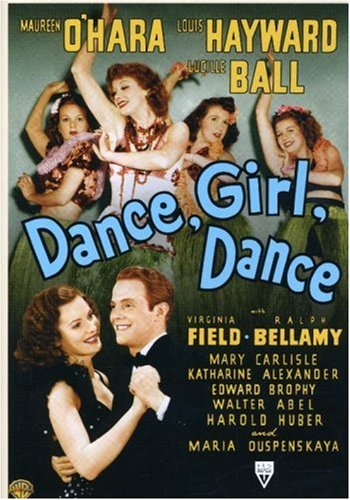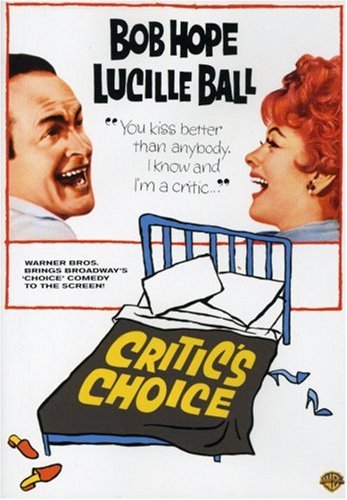Lucille Ball Film Collection (Dance Girl Dance / The Big Street / Du Barry Was a Lady / Critic’s Choice / Mame)
Editorial review, courtesy of Amazon.com
Offering an abundance of vintage Hollywood entertainment, the five films included in The Lucille Ball Film Collection cover a broad spectrum of Lucy’s movie career, from one of her most prominent early roles to her final big-screen appearance. Long before she became an icon of TV sitcoms, Lucy had moved from New York to Hollywood in 1933, appearing in a variety of mostly uncredited showgirl roles in over 40 films before getting her first big break in the 1937 classic Stage Door (not included in this set).
Rising star

![]() Lucy’s star quickly began to rise, and by the time she played sassy nightclub singer “Tiger Lily White” in 1940’s Dance, Girl, Dance, she was holding her own with such famous costars as Maureen O’Hara and Ralph Bellamy. Noteworthy as an early feminist comedy directed by Dorothy Arzner (one of the only women to break into the male-dominated profession of Hollywood directors), it’s a fun and fascinating film that helped to establish Lucy’s persona as a fiery, independent entertainer.
Lucy’s star quickly began to rise, and by the time she played sassy nightclub singer “Tiger Lily White” in 1940’s Dance, Girl, Dance, she was holding her own with such famous costars as Maureen O’Hara and Ralph Bellamy. Noteworthy as an early feminist comedy directed by Dorothy Arzner (one of the only women to break into the male-dominated profession of Hollywood directors), it’s a fun and fascinating film that helped to establish Lucy’s persona as a fiery, independent entertainer.
Fiery, independent woman
That image was pushed to extremes in The Big Street (1942), an oddly enjoyable comedy/melodrama in which Lucy and Henry Fonda are cast against type–she as a selfish, unlikable nightclub diva, and he as the doting busboy who devotes himself to her when she’s badly injured by her villainous boss. A year later, Lucy starred with Red Skelton and Gene Kelly in Du Barry Was a Lady, a lavish and still-delightful MGM musical comedy that was Lucy’s first film in color–and the first to feature the blazing red hair (recommended by legendary Hollywood stylist Sydney Guilaroff) that became one of Lucy’s most beloved and readily identifiable features.
Lucy in middle age

By the time Lucy played a middle-aged playwright in Critic’s Choice (1963), she’d become one of TV’s most beloved and successful comediennes, and her film career was clearly winding down. Critic’s Choice was a fitting follow-up to 1960’s The Facts of Life, reuniting Lucy with four-time costar Bob Hope in an upscale comedy/drama that was noteworthy for its progressive depiction of divorced and remarried sophisticates in New York City. A decade later, Lucy chose the ill-fated Mame (1974) for what would prove to be her final big-screen appearance.
Despite brutal reviews that focused on Lucy being too old for the title role (originated on Broadway by Angela Lansbury), Mame has survived its bad reputation to become one of Hollywood’s most popular high-camp misfires, with Lucy’s eccentric and lavishly costumed character gaining a loyal following (especially in the gay community) as a colorful inspiration for female impersonators. In some ways it’s a fitting end to Lucy’s big-screen career; she always gave maximum effort against considerable odds, and The Lucille Ball Film Collection is a testament to Lucy’s show-biz tenacity. —Jeff Shannon


